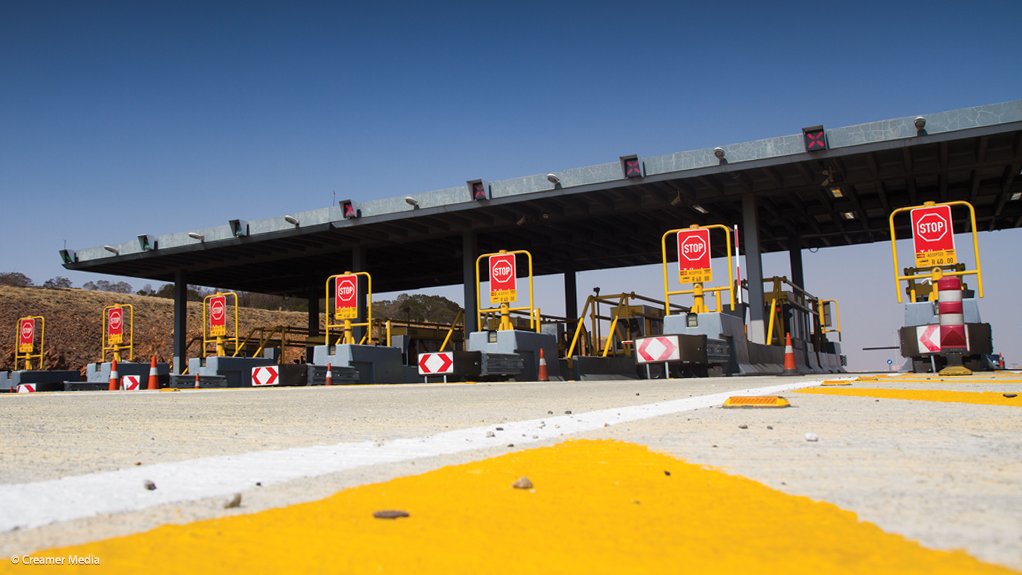Civil rights body the Organisation Undoing Tax Abuse (Outa) has voiced what it terms its disgust at the mandatory tariff hikes announced by the South African National Roads Agency (Sanral) in recent government gazette notices.
The Automobile Association (AA) said in a separate statement that it would like to advise Gauteng motorists that the price of e-tolls on the Gauteng Freeway Improvement Project (GFIP) roads, is set to increase by almost 5% on 1 March, as "it does not appear on Sanral’s e-toll website, nor are we aware of any Sanral customers being directly informed thereof".
These increases to the toll rates come barely six months after the tariffs were reduced as a result of a public outcry, and discounts of up to 60% were offered on outstanding balances before September 2015.
"We are disgusted that Sanral and the Department of Transport have this attitude and approach of continuously applying mandatory annual increases to all toll plazas in its growing toll network, whilst the use and income generated by the various tolling contracts have serious questions, about which Outa is busy conducting intensive research and investigation," said Outa chairperson Wayne Duvenage.
Outa, which recently changed its name from the Opposition to Urban Tolling Alliance, highlighted a few specific concerns in a statement on Wednesday. Toll concessionaire contracts like those along the N3 and N4, and N1 could run for as long as 30 years. Despite the fact that the initial construction of a toll road is a fixed capital cost, meaning that the effective bond repayments on the tolled road become lower each year, Sanral's toll fees keep rising every year for the entire 30-year period.
This is regardless of whether the capital amount has already been repaid, and far beyond the cost necessary to maintain the road, according to Outa.
"Toll roads in South Africa have therefore become enormous tax-driven cash cows with guaranteed income for periods of up to 30 years for toll concessionaires and their connected companies," said Outa.
A second cause for concern is the fact that some construction firms own large stakes in the tolling concessionaires, so that they in effect act as decision-makers for construction and maintenance contracts awarded by the concessionaire on the tolled routes they manage.
"Our research shows that toll contractors are able to award maintenance and construction contracts to themselves and/or their affiliates at inflated prices, driving up the 'costs', which the concessionaire justifies it has to recoup through its toll charges to the public," said Outa.
A third problem area for Outa is lack of transparency around income garnered from tolls. "Selected construction and other companies collect massive revenues from operating and administering the toll collection processes and yet there is a reluctance to discuss or divulge with absolute transparency, the income generated from the tolls," said Outa.
In addition, these firms keep mum about details around construction and maintenance contracts, saying they are private companies and are therefore not compelled to disclose this information to the public.
Sanral has scrapped the legal obligation to maintain or provide alternate routes to tolled roads, "thereby ensuring road users are held captive to the toll roads, while the alternate routes fall into gross disrepair", said Outa."It is simply irrational and unjust for Sanral to allow this abusive situation to continue."
Outa questioned the legitimacy of the entire user-pays tolling mechanism in South Africa, as Sanral, it stated, has made legal changes so that tolling revenue generated along one route does not need to be reserved for the sole use of that specific road.
"This enables revenues that are generated from one conventional tolled road to be utilised on other projects or areas within Sanral’s expense base," Sanral has said.
All of this has created a "diabolical and unjust situation which has been allowed to continue unchallenged for too long", said Outa. It decried the "cosy relationship between Sanral and some construction companies, concessionaires and consultants, which is driving unjust and massive profits to these parties at the expense of the public".
Outa pointed out that as toll road concessionaires provide a service to the public on behalf of the state, they are subject to stringent laws.
"We require answers to a number of serious questions, and it would be in the interest of all parties concerned to not force Outa to seek the required information through drawn-out... processes," said Outa.
Edited by: News24Wire
EMAIL THIS ARTICLE SAVE THIS ARTICLE
To subscribe email subscriptions@creamermedia.co.za or click here
To advertise email advertising@creamermedia.co.za or click here













